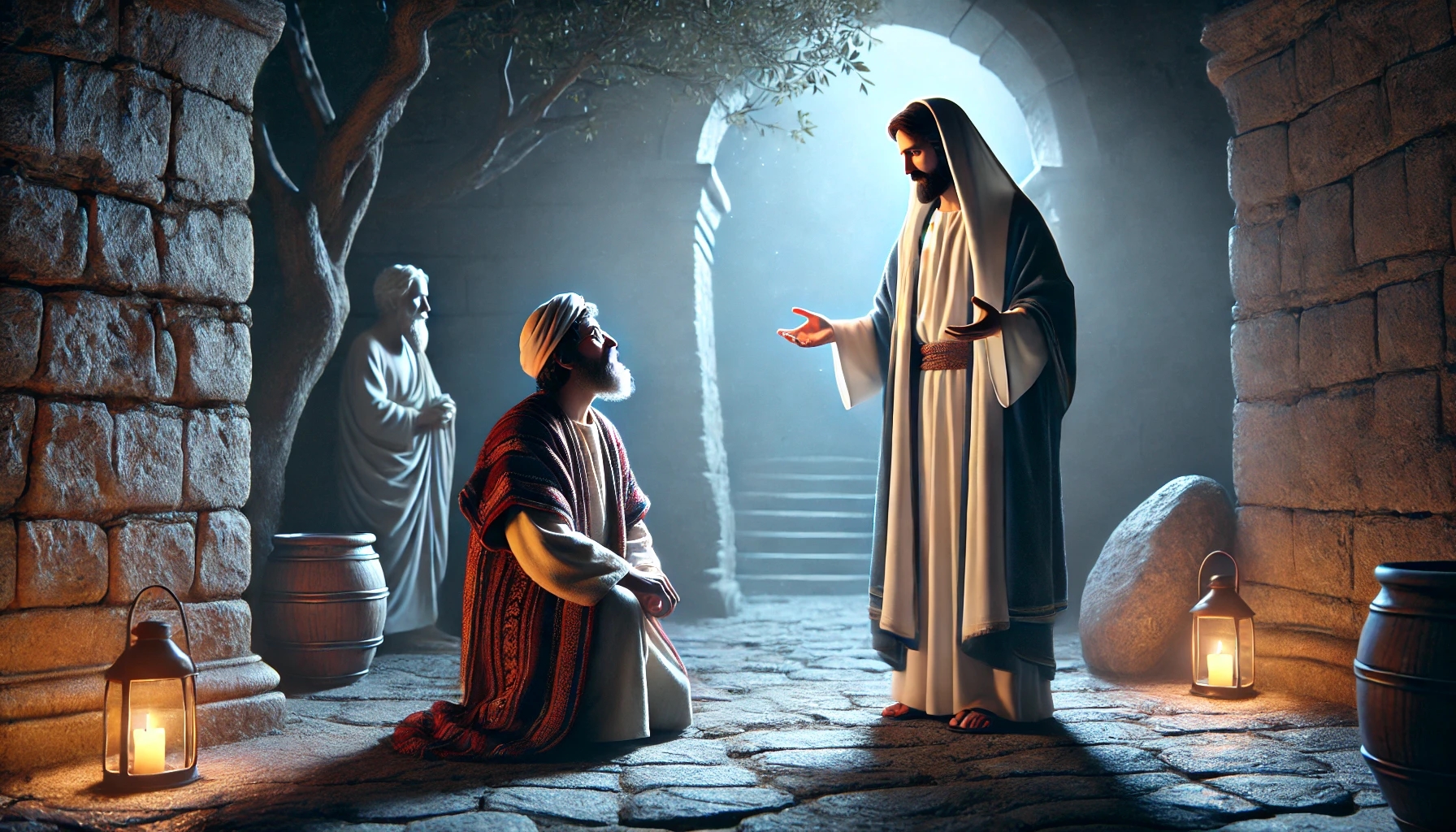


4.5 The Witness of Nicodemus
Nicodemus and the Necessity of Spiritual Rebirth
Read John 3:1–21. How does Nicodemus’ testimony support the theme of the Gospel of John?
Nicodemus, a respected teacher and member of the Sanhedrin, comes to Jesus at night to seek answers to his inner questions (John 3:1–21). Although he acknowledges Jesus as Rabbi and sees the signs that testify to Jesus’ divine calling, he initially does not recognize Him as the Messiah. His encounter with Jesus illustrates the central theme of the Gospel of John: the necessity of spiritual rebirth and faith to see the kingdom of God. Jesus reveals to him that even a righteous Jew needs a profound transformation. This lesson overcomes Nicodemus’ doubts and lays the foundation for his later role as a follower of Jesus, highlighting the shift from intellectual understanding to true faith.
Read John 3:3–21. What did Jesus say to Nicodemus to show that He understood him?
When Nicodemus came to Jesus, Jesus immediately recognized his inner doubts and the ignorance that lay within him despite his position as a teacher of Israel. Jesus got straight to the heart of the matter and explained to Nicodemus that he, like all people, needs to be spiritually reborn to see the kingdom of God (John 3:3–21). This statement shook Nicodemus, who thought his Jewish heritage and knowledge of the law were sufficient. Jesus made it clear that external affiliation or knowledge is not enough; a deep, personal transformation by the Spirit is required. By confronting Nicodemus’ spiritual blindness, Jesus opened his eyes to the true nature of faith and salvation. Nicodemus’ later support of Jesus shows that this confrontation ultimately led to a profound change in him.
What does it mean to be “born again,” and why does Jesus place so much emphasis on it?
To be “born again” means to experience a fundamental inner renewal and transformation brought about by the Holy Spirit. This rebirth goes beyond a mere external change in behavior; it affects the deepest levels of the human heart and soul. In John 3:3–7, Jesus explains that rebirth is necessary to see the kingdom of God. This transformation does not occur through human effort but through the work of the Spirit, who renews the believer from within and grants a new life in Christ.
Jesus places so much emphasis on rebirth because it is the prerequisite for entering into a genuine relationship with God. Through this renewal, a person is enabled to recognize God’s truth, receive His love, and live a life no longer dominated by sin but by the Spirit of God. Rebirth is necessary because it sheds the old, sinful self and brings a person into a new life in Christ, which is crucial for salvation and eternal life.
Nicodemus’ testimony about the necessity of spiritual rebirth has a direct connection to our daily lives and faith. Jesus’ message to Nicodemus challenges us to go beyond mere religious knowledge or external affiliation. In our daily lives, it is easy to rely on traditions, routines, or intellectual understanding. But Jesus emphasizes that a deep, personal transformation is needed—a new heart and a renewed spirit—to truly be connected with God.
For our faith, this means that our daily relationship with God should be marked by inner change. Rebirth through the Holy Spirit gives us the strength to change our character and actions to align with God’s will. This renewal enables us to overcome sin, experience God’s love, and live our daily lives in trust in Him. Through this spiritual rebirth, we experience the true meaning of faith, which is not just intellectual assent but a living, transformative relationship with God.
True transformation begins in the heart when we allow God’s Spirit to renew us from within.
(Visited 37 times, 1 visits today)






















